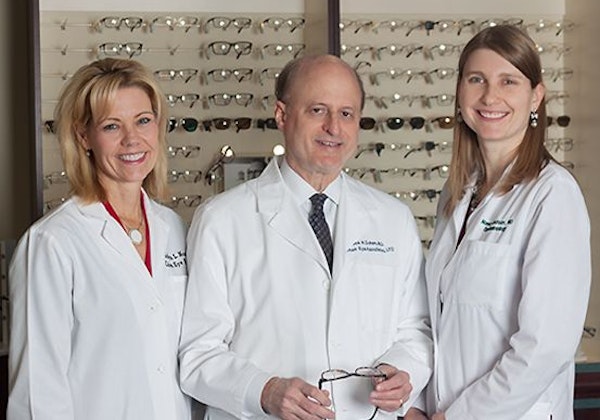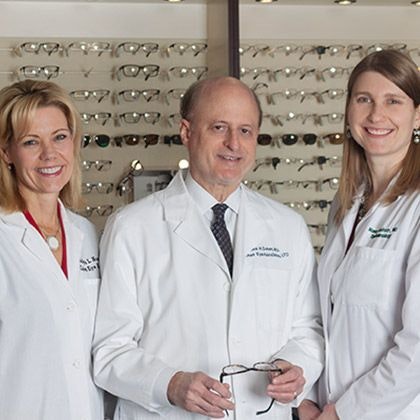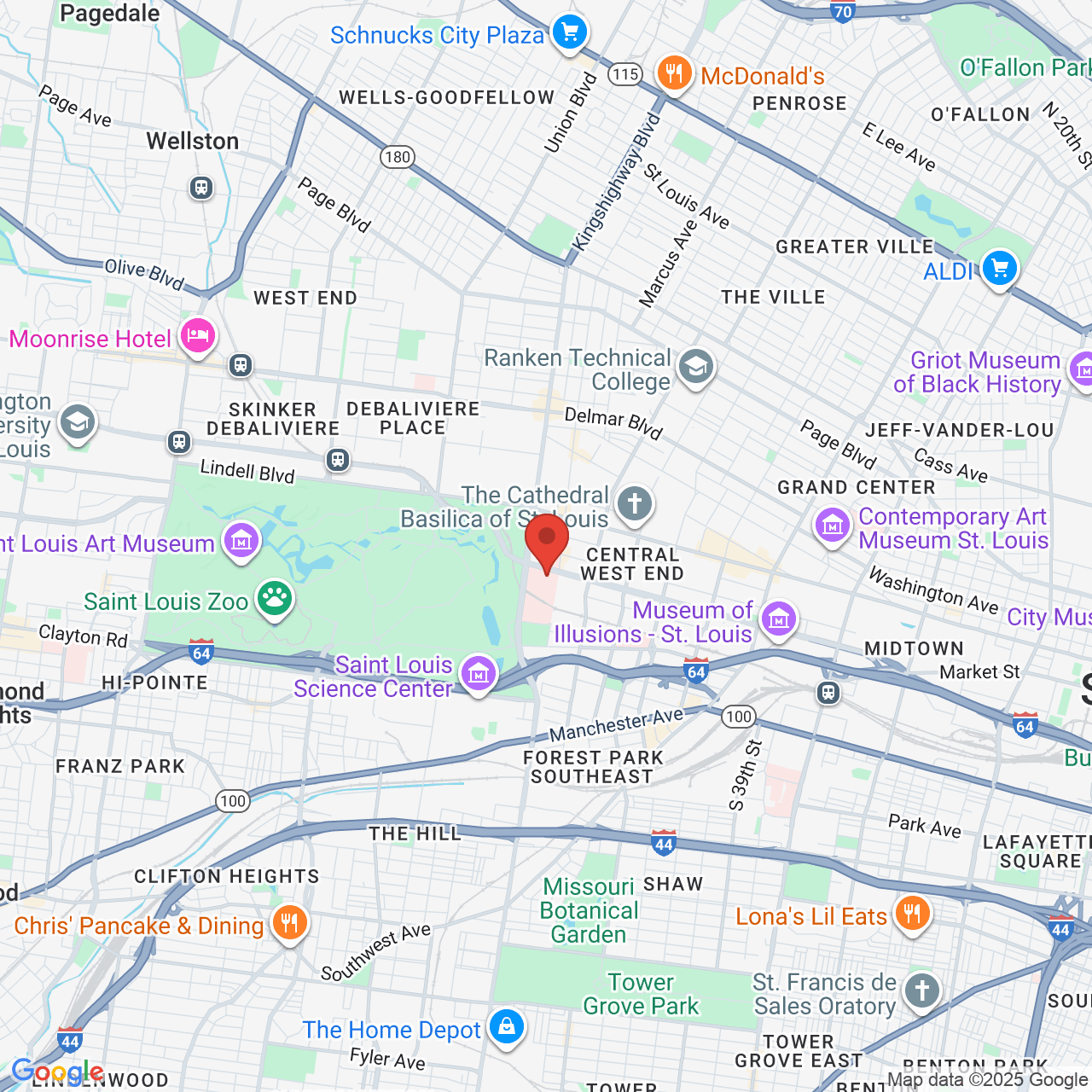
Diabetic Retinopathy
What Is Diabetic Retinopathy?
Diabetic retinopathy is a complication of diabetes that affects the retina, the light sensitive tissue located at the back of the eye. High blood sugar levels can cause damage to the retinal blood vessels. The damaged blood vessels leak blood into the retina, impairing vision.
In later stages, new blood vessels grow to replace the damaged retinal blood vessels. Unfortunately, these new blood vessels are poorly formed and prone to ruptures and leakage that affect the condition of the retina.
Diabetic Retinopathy Is a problem we cannot ignore
Stages of Diabetic Retinopathy
Nonproliferative Diabetic Retinopathy (NDR)
Nonproliferative diabetic retinopathy is an early stage of the condition in which the damaged blood vessels leak into the retina. There are three stages of nonproliferative diabetic retinopathy: mild, moderate, and severe. If NDR continues to progress, a patient's diabetic retinopathy reaches the fourth and final stage.
Proliferative Diabetic Retinopathy (PDR)
Proliferative diabetic retinopathy is the stage of the condition in which new blood vessels begin to develop. These abnormal blood vessels can break and leak additional fluid into the retina. Proliferative diabetic retinopathy will increase the risk of developing macular edema and suffering severe vision loss.
Diabetic Macular Edema
/
Macular edema is a condition that can occur in people with diabetic retinopathy. The macula is the central area of the retina responsible for clear, pinpoint vision. As excess fluid from damaged blood vessels leaks into the eye, it can swell and distort the macula, causing blurry vision. The effects of macular edema are compounded by the cloudiness already present in the eye from diabetic retinopathy, and could lead to blindness without treatment.
Are You at Risk for Vision Loss? Our Eye Doctors Can Help You
Offering comprehensive eye care, the team at Cohen Eye Associates can help prevent vision loss and enhance your eyesight and quality of life. We will use the latest laser treatments in combination with less invasive therapies to treat diabetic macular edemas and manage diabetic eye disease.
If you live in the greater St. Louis, MO, area and would like to speak with an experienced eye doctor, we encourage you to contact Cohen Eye Associates, Limited online. You can also request a consultation by phone.
Schedule an Eye Exam
(314) 361-5003

"Great office and great doctors." 5 Star Ophthalmology in St. Louis
Great office and great doctors. I have seen both Dr. Cohen and Dr. Noonan. I am very impressed with them, as well as all the staff. I feel confident in their expertise.
View On GoogleEveryone was very professional, provided extremely thorough exam and answered all my questions.
View On GoogleDiabetic Retinopathy Symptoms

Common signs and symptoms of diabetic eye disease include:
- Gradually worsening vision
- Poor color vision
- Sudden loss of vision
- Blurry or patchy vision
- Floaters in your field of vision
- Eye pain
- Red eyes
If you have diabetes, it's important that you undergo an eye exam every year or every other year to monitor your retinal health. Early diagnosis and treatment of diabetic eye disease are essential for preventing vision loss.
Risk Factors
/
Risk factors for diabetic retinopathy include long-term diabetes, high blood sugar levels, hypertension (high blood pressure), high cholesterol, use of tobacco products, pregnancy, and being of Hispanic, African, or Native American descent.
Diabetic Retinopathy and Glaucoma Understanding the Link
Diabetic retinopathy and glaucoma are two separate causes of vision loss that don't seem connected. However, people with diabetic retinopathy are at risk for developing glaucoma as well as cataracts if their condition isn't properly managed.
As the blood vessels of the retina become damaged, the new, abnormal blood vessels wind up blocking the natural drainage system of the eye. This results in increased intraocular pressure that can damage the optic nerve. It's also suggested that high blood sugar can increase the pressure within your eyes.
This is yet another reason to carefully manage your diabetes, and to see an eye care specialist regularly to monitor your vision. When you visit our St. Louis eye center, we'll check your intraocular pressure and screen for glaucoma just to be on the safe side. If you do develop the condition, we can use advanced lasers to treat both open-angle and angle-closure glaucoma.

Glaucoma is a leading cause of blindness,
and it can be difficult to detect...
Eye Care from a Trusted Expert A St. Louis Patient Shares Her Experience
"Dr. Bruce Cohen and his staff are always professional, friendly, and helpful. Even when it's crazy busy in the office,
you are made to feel like you are the only one there.
"I fully trust Dr. Cohen and his diagnostic and treatment abilities, along with knowing when something is out of his scope of ability to treat." Kristine Warnecke - 5 Star Google Review - 2020
Will I Need Surgery?
/
Surgery is recommended when a patient develops proliferative diabetic retinopathy or macular edema. Patients can protect their vision by controlling their blood sugar, properly managing their diabetes, and scheduling regular vision appointments.
Treatments for Diabetic Retinopathy

Focal Laser Treatment
Also known as photocoagulation, focal laser treatment seals or shrinks the abnormal blood vessels, slowing fluid leakage. The procedure should help prevent the progression of diabetic macular edema, though photocoagulation alone will not restore the patient's vision. Focal laser therapy can be completed in a single session.

Scatter Laser Treatment
Also known as panretinal photocoagulation, scatter laser treatment targets the periphery of the retina rather than the macula. Multiple laser burns are created, which causes abnormal blood vessels to shrink, scar, and stop leaking. Scatter laser therapy will typically require two or more sessions to complete.








